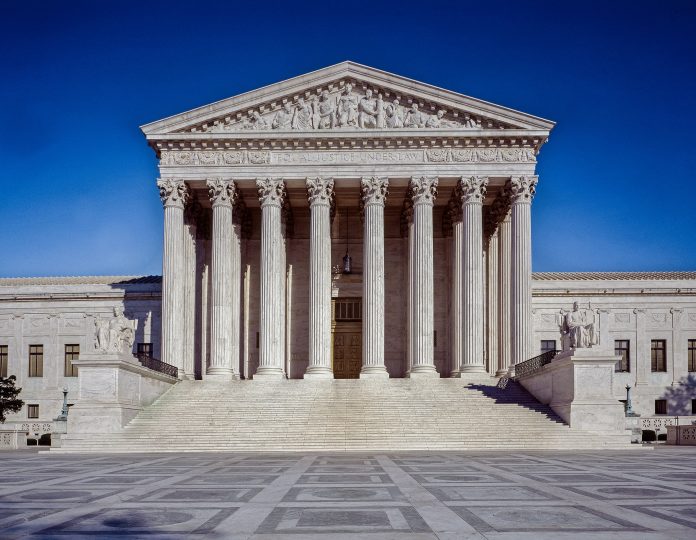WASHINGTON (Reuters) – Ketanji Brown Jackson was confirmed by the Senate on Thursday as the first Black woman to serve on the Supreme Court in a milestone for the United States and a victory for President Joe Biden, who made good on a campaign promise as he seeks to infuse the federal judiciary with a broader range of backgrounds.
The vote to confirm the 51-year-old federal appellate judge to a lifetime job on the nation’s top judicial body was 53-47, with three Republicans – Susan Collins, Lisa Murkowski and Mitt Romney – joining Biden’s fellow Democrats. A simple majority was needed, as Jackson overcame Republican opposition in a Supreme Court confirmation process that remains fiercely partisan.
Jackson will take the 83-year-old Breyer’s place on the liberal bloc of a court with an increasingly assertive 6-3 conservative majority. Breyer is due to serve until the court’s current term ends – usually in late June – and Jackson would be formally sworn in after that. Jackson served early in her career as a Supreme Court clerk for Breyer.
Of the 115 people who have served on the Supreme Court since its 1789 founding, all but three have been white. It has had two Black justices, both men: Clarence Thomas, appointed in 1991 and still serving, and Thurgood Marshall, who retired in 1991 and died in 1993. Current Justice Sonia Sotomayor is the only Hispanic ever to serve.
Jackson will become the sixth woman justice ever. For the first time, four women justices will be serving together.
Presidential nominations to the Supreme Court have become a flashpoint in American politics. The court wields great influence in shaping American policy on hot-button issues.
Mitch McConnell, the Senate’s top Republican, criticized Jackson in the debate before the vote, calling her the choice of the “radical left” and saying her “disturbing” judicial record included injecting personal policy biases in rulings and treating convicted criminals as gently as possible in sentencing.
Vice President Kamala Harris, who became the first Black woman to hold that post after Biden selected her as his 2020 election running mate, presided over the vote. Afterward, Harris told reporters Jackson’s confirmation “makes a very important statement about who we aspire to be” as a nation and that there will be “full representation and the finest and brightest and the best” on the Supreme Court.
The White House said Jackson joined Biden and senior staff at the executive mansion to watch the vote and that the two will make remarks on Friday at an event celebrating her confirmation.
During March confirmation hearings, Jackson said she would bring to the Supreme Court her life experiences and perspectives including time as a judge, a court-appointed lawyer for criminal defendants who could not afford an attorney, a member of a federal commission on criminal sentencing and “being a Black woman, lucky inheritor of the civil rights dream.”
Biden has aimed to bring more women and minorities and a broader range of backgrounds to the federal judiciary. Jackson’s appointment fulfilled a pledge Biden made during the 2020 presidential campaign to name a Black woman to the Supreme Court.
The other women to have served on the Supreme Court include current members Amy Coney Barrett, Elena Kagan and Sotomayor, the retired Sandra Day O’Connor and Ruth Bader Ginsburg, who died in 2020.
Biden appointed Jackson last year to the U.S. Court of Appeals for the District of Columbia Circuit after she spent eight years as a federal district judge. Like the three conservative justices appointed by Biden’s Republican predecessor Donald Trump, Jackson is young enough to serve for decades in the lifetime job.
Source: Hamodia






